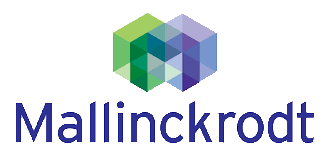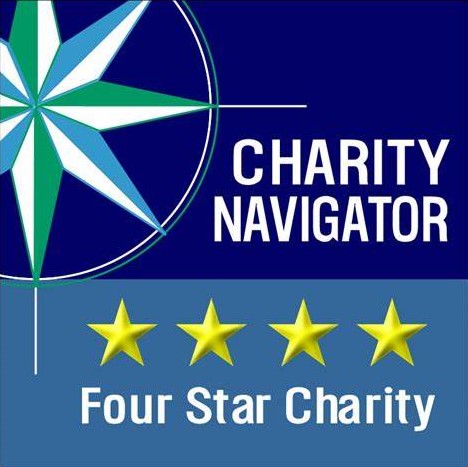April 21, 2020
The Honorable Steven T. Mnuchin Secretary of Treasury
16US Department of the Treasury
1500 Pennsylvania Avenue NW
Washington, DC 20220
The Honorable Andrew Saul
Commissioner of Social Security Administration
US Social Security Administration
1300 D Street SW
Washington, DC 20024
The Honorable Robert Wilkie
Secretary of Veterans Affairs
US Department of Veterans Affairs
810 Vermont Avenue NW
Washington, DC 20571
Dear Secretary Mnuchin, Commissioner Saul, and Secretary Wilkie:
The undersigned organizations, which are members and allies of the Consortium for Citizens with Disabilities (CCD), write in response to your recently announced deadline for Social Security beneficiaries to file taxes or utilize the new web tool to claim economic impact payments for child dependents under the age of 17 or wait until 2021 to claim the payments. CCD is the largest coalition of national organizations working together to advocate for federal public policy that ensures the self-determination, independence, empowerment, integration and inclusion of children and adults with disabilities in all aspects of society. We represent the parents with disabilities receiving Social Security Disability Insurance who must now meet this deadline, along with the disabled widows and widowers with children and the retiree grandparents who have disabilities or have adopted grandchildren with disabilities.
We are extremely concerned by the unexpected announcement of this very short deadline. Announcing a Wednesday deadline on a Monday afternoon is simply put, not enough time. Media reports that the deadline is noon on Wednesday (with the time zone unspecified) add to the urgency and the confusion. The new non-filers web tool only became available on April 10, less than two weeks ago. Reports to our organizations have made it clear that the web tool is not usable via most cell phones and that it is not compatible with some screen-reader programs used by people who are blind or have visual impairments. The web tool is also an internet-only solution that has not taken into account the needs of people who do not have regular access to the internet (a problem compounded by stay-at-home orders and closures of public libraries). As we raised in our prior letter, there is significant confusion as to how the web tool works for those who do not have bank accounts, do not have account information and routing numbers readily available, or who prefer a paper check or a deposit to a Direct Express card. The Get My Payment tool, also recently released on April 17, does not allow Social Security beneficiaries to check their status, meaning that none of the individuals who are required to submit the information by Wednesday at noon can verify if their information is correctly entered or received by Treasury. By setting such a short deadline and providing insufficient web tools, Treasury and the other agencies are failing people with disabilities, their children, and other Social Security beneficiaries with eligible children. We urge the Agencies to eliminate this deadline and make payments on a rolling basis as information is submitted to the web tool.
We understand and support the agencies’ desire to issue Economic Impact Payments as quickly as possible, but this solution does not take into account the serious outreach efforts that are necessary to reach these populations. As we have pointed out in prior letters, efforts to reach Social Security, SSI, and VA Disability Compensation and Veterans Pension beneficiaries in 2008 when the IRS last issued economic stimulus payments faced major challenges and left out 17 percent of beneficiaries. The issues we identified in our prior letter continue to be challenges, including lack of internet access, physical and electronic accessibility issues, and legally required reasonable accommodations and assistance for people with disabilities in understanding what is required. The Agencies must undertake outreach to these populations and create options for them. To balance this need with the need to issue payments quickly, we also urge the Agencies to adopt several deadlines that allow individuals to submit their information over the course of the year and be paid as these deadlines pass. By creating a system that requires action within the next 48 hours or forces families to wait until 2021, the Agencies are failing to reflect Congressional intent of these payments: to assist people in getting through this moment of crisis and allow them to stimulate the economy.
Thank you for your consideration of this important issue for Social Security, SSI, VA Disability Compensation, and Veterans Pension beneficiaries. The United States is currently in an unprecedented time and we must all work together to accommodate all persons. We stand ready to work with you to find solutions to this vital issue. Please do not hesitate to contact Bethany Lilly (lilly@thearc.org) or Stacy Cloyd (stacy.cloyd@nosscr.org) with any questions or to arrange for a meeting.
Sincerely,
Access Living ACCSES
ADAPT Montana
Alabama Disabilities Advocacy Program
Alliance for Aging Research
Alliance for Retired Americans
American Association of Kidney Patients
American Association of People with Disabilities
American Association on Health and Disability American Council of the Blind
American Diabetes Association
American Kidney Fund
American Network of Community Options & Resources (ANCOR)
Association of People Supporting Employment First (APSE)
Association of Programs for Rural Independent Living
Atlanta Legal Aid Society
Autism Society of America
Autistic Self Advocacy Network
Autistic Women & Nonbinary Network
Bay Area Community Services
Benefits Law Center
California Access Coalition
California Association of Food Banks
Californians for Disability Rights Inc
Center for Disability Rights
Center for Law and Social Policy (CLASP)
Center for Public Representation
Center for Survivor Agency & Justice
Charlotte Center for Legal Advocacy
Children's Law Center
Church World Service
Coalition on Human Needs
Communities Actively Living Independent & Free
Community Legal Aid Society, Inc., Delaware
Community Legal Services
Congregation of Our Lady of
Charity of the Good Shepherd, U.S. Provinces
Congress of California Seniors
Cystic Fibrosis Research, Inc. (CFRI)
Davis Phinney Foundation
DC KinCare Alliance
Democratic Disability Caucus of Florida
Disability Law Center
disAbility Law Center of Virginia
Disability Law Center, Massachusetts
Disability Rights California
Disability Rights Center - NH
Disability Rights Connecticut
Disability Rights Education & Defense Fund (DREDF)
Disability Rights Iowa
Disability Rights Maine Disability Rights MD Disability Rights New Jersey Disability Rights New York
Disability Rights North Carolina
Disability Rights TN
Disability Rights Vermont Empire Justice Center Epilepsy Foundation
Epilepsy Foundation New England
Equal Rights Advocates
Equality North Carolina
First Focus on Children
Food for People, the Food Bank for Humboldt County
Fund for Community Reparations for Autistic People of Color's Interdependence, Survival, and Empowerment
Georgia Legal Services Program
Global Liver Institute
Global Policy Solutions
GO2 Foundation for Lung Cancer
Gray Panthers
Health Hats
Healthcare Rights Coalition
Homeless Action Center
Homeless Advocacy Project
Homeless Persons Representation Project
Houston Center for Independent Living
Independent Living Center of the Hudson Valley, Inc.
Inner City Law Center
Japanese American Citizens League
The Jewish Federations of North America
Justice in Aging
Kentucky Protection and Advocacy
Lakeshore Foundation
Latinos for a Secure Retirement
Law Foundation of Silicon Valley
Legal Aid at Work
Legal Aid Foundation of Los Angeles Legal Aid Justice Center
Legal Aid Society of Columbus
Legal Aid Society of the District of Columbia
Legal Council for Health Justice
Liberty Resources
Lupus and Allied Diseases Association, Inc.
Medicare Rights Center
Multiple Sclerosis Foundation NAACP
National Academy of Elder Law Attorneys
National Advocacy Center of the Sisters of the Good Shepherd
National Association of Councils on Developmental Disabilities
National Association of the Deaf
National Center for Lesbian Rights
National Coalition for the Homeless
National Committee to Preserve Social Security and Medicare
National Council on Independent Living
National Disability Rights Network
National Down Syndrome Congress
National Education Association
National Federation of the Blind
National Health Law Program
National Low Income Housing Coalition
National Multiple Sclerosis Society
National Organization of Social Security Claimants' Representatives
National Women's Law Center
Native American Disability Law Center
ND Protection & Advocacy Project
Network of Jewish Human Service Agencies
Not Dead Yet
Paralyzed Veterans of America
Partnership for Inclusive Disaster Strategies
PFLAG National
Pisgah Legal Services
Protection and Advocacy for People with Disabilities
RespectAbility
RESULTS DC
Second Harvest of Silicon Valley
Senior and Disability Action
Social Security Works
Southeast Louisiana Legal Services
Starkloff Disability Institute
The Leadership Conference on Civil and Human Rights
The Legal Aid Society
The Legal Aid Society of San Mateo County
The Michael J. Fox Foundation for Parkinson's Research
Union for Reform Judaism
United Cerebral Palsy National
United Spinal Association
United Way of Central Ohio
University of Maryland Carey School of Law, Medical-Legal Partnership Clinic
Urban Justice Center
VetsFirst
Western Center on Law and Poverty
Women's Institute For A Secure Retirement






























